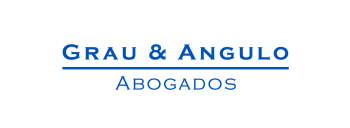On October 20 2017 Barcelona Commercial Court Number 4 lifted the preliminary injunctions that it had previously granted ex parte at the request of Gilead in relation to the imminent market launch of tenofovir and emtricitabine generic medicinal products by Mylan and Teva.
Gilead was the owner of:
- European Patent 0915894 (EP'894), which claimed tenofovir disoproxil; and
- Supplementary Protection Certificate C20050034 (SPC'034), which was based on EP'894 for the combination of tenofovir disoproxil and emtricitabine.
On July 25 2017 EP'894 expired and SPC'034 entered into force.
The Spanish Patents and Trademarks Office initially refused SPC'034. However, Gilead appealed the decision to the Madrid High Court of Justice, which ultimately ruled in favour of the granting of SPC'034 in a September 9 2016 judgment.
Claim 27 of EP'894 served as a basis for the granting of SPC'034, despite the fact that the claim – along with the rest of the patent specification – did not mention emtricitabine. Claim 27 read as follows: "A pharmaceutical composition comprising a compound according to any one of claims 1-25 together with a pharmaceutically acceptable carrier and optionally other therapeutic ingredients".
Gilead commercialised Truvada, a tenofovir and emtricitabine medicinal product for the treatment and prevention of viral infections, including HIV.
In May and June 2017 Gilead requested and was granted ex parte preliminary injunctions against Mylan and Teva for the alleged imminent infringement of SPC'034.
The defendants opposed the preliminary injunctions:
- alleging the invalidity of SPC'034 on the grounds of Article 15(1)(a) in relation to Article 3 of the EU Regulation concerning the Supplementary Protection Certificate for Medicinal Products (469/2009); and
- invoking the applicable European Court of Justice (ECJ) case law.
More specifically, the defendants alleged that Claim 27 would have exactly the same object and scope with or without the line "and optionally other therapeutic agents", which had been the sole ground for the granting of SPC'034 for the combination of tenofovir and emtricitabine.
Thus, the basic patent claimed an active ingredient (tenofovir), but not its specific combination with emtricitabine (or any other active ingredient). In this regard, and according to ECJ case law, an SPC for the combination would be contrary to Article 3(a) of the regulation and therefore invalid.
Gilead pleaded that SPC'034 was valid because the combination was comprised within the scope of protection of Claim 27 of the patent. Gilead also argued that, in any event, the matter had already been decided by the Madrid High Court of Justice, whose decision was binding for the Commercial Court in preliminary injunction proceedings.
The court upheld the arguments of Mylan and Teva and revoked the preliminary injunctions in an October 20 2017 decision, which was deliberated by the three Barcelona patent judges.
In its decision, the court first clarified that the Madrid High Court of Justice had decided an appeal by Gilead regarding an administrative act (refusal of SPC'034). As such, the decision did not have the effect of res iudicata (ie, matters already decided) in relation to third parties and was therefore not binding.
Subsequently, after reviewing the applicable ECJ case law following Medeva (C-322/10), the court concluded that Claim 27 of EP'894 did not protect the combination of tenofovir and emtricitabine in the sense of Article 3(a) of EU Regulation 469/2009. As such, SPC'034 was prima facie contrary to said provision and was thus invalid.
This article was first published by the International Law Office, a premium online legal update service for major companies and law firms worldwide. Register for a free subscription.
For further information on this topic please contact Núria Ribera? at Grau & Angulo by telephone (+34 93 202 34 56) or email ([email protected]). The Grau & Angulo website can be accessed at www.ga-ip.com.



